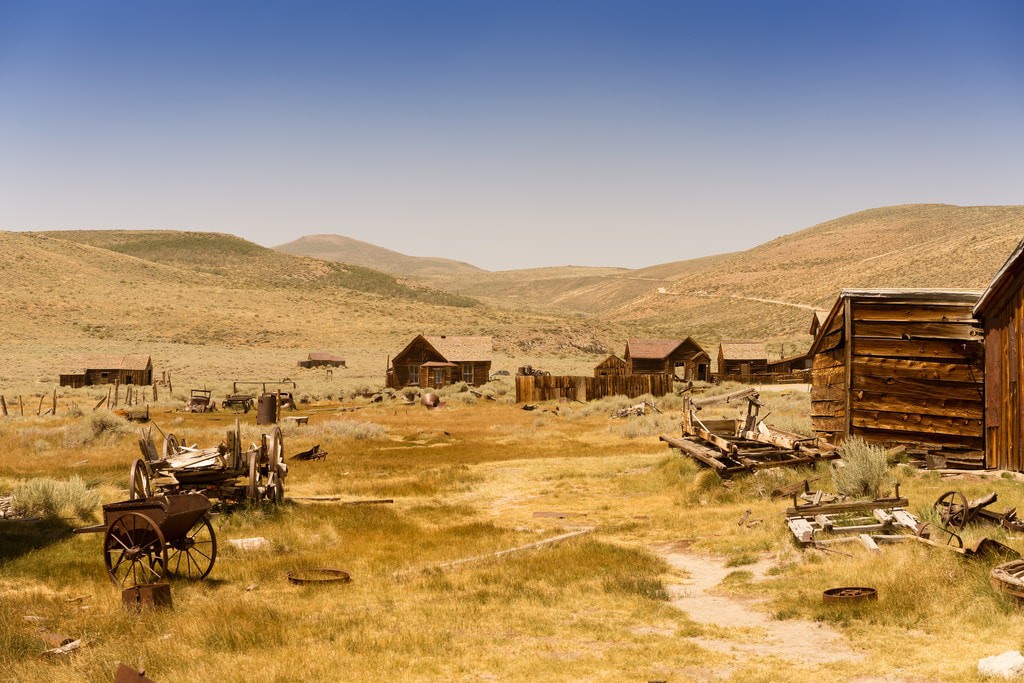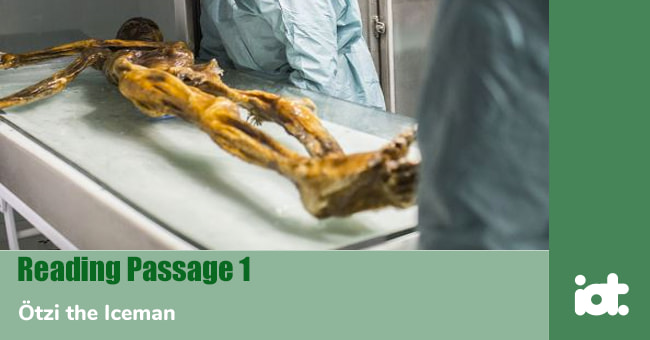Solution for: Bodie: America's most famous ghost town
Answer Table
| 1. valley | 8. TRUE |
| 2. miners | 9. NOT GIVEN |
| 3. 20 percent | 10. NOT GIVEN |
| 4. electricity | 11. FALSE |
| 5. copper | 12. FALSE |
| 6. sand | 13. TRUE |
| 7. zinc |
Exam Review
Bodie: America's most famous ghost town

If you peek inside on of the broken- down buildings in Bodie, California, you might see dust- covered furniture an old muffin pan, rusty tins, and broken kerosene lamps or a fully stocked general store with original wooden boxes and shelves with tin cans Situated in a sagebrush- covered valley in the eastern foothills of the Sierra Nevada mountain range the old goldmining town, once busy with life began in the 1870s, when prospective miners arrived in the town in hopes of finding gold and becoming wealthy. By the 1940s, the golds was gone and the last mine closed. Today not many structures remain in Bodie, there is about 20 percent of the number that stood in the 1870a, when the town had up to 8.000 inhabitants.
In the 1870s, thirty mines were built and began producing large pieces of gold in large quantities. The standard Company was one of the first factories in American to extract the remaining traces of gold using electricity. Chemical processing was done in two stages. In the first stage, workers washed ground up ore over copper sheets covered with gold- grabbing mercury, then they heated in to release and condense the mercury, and turned the melted mixture into the shape of golf bars. In a second stage devised to obtain any remaining gold and silver particles, the one, now the consistency of sand was soaked in watered- down potassium cyanide. This drew the metals out into a form that could be trapped by trays containing small pieces of zine. This process went on for about 70 years, until the gold mines dried up.
When the California state Parks Department took over Bodie in 1962, it began a program of “arrested decay,’ maintaining the run- down structures just as they appeared at the time the department acquired the town.
According to Charley Spiller, a Bodie maintenance mechanic, the greatest enemies of preservation are wind, which can gust up to 100 miles an hour on nearby mountains, and snow, which average 13 feet a year. When snow gets into a building and sits and.... Into the floors, the condition of the floors gets worse, and they often rot. Currently, a team of three or four workers spends six months of each year.
Strengthening walls, repairing roofs, and replacing smashed windows. Spiller and his team rebuild walls using pine similar to the native Jeffrey pine that was originally used without constant attention, most houses would fall apart. Nearby towns similar to Bodie have already disappeared because, for one reason or another, they weren’t maintained.
While the staff work to preserve the site’s empty look, a variety of natural life lives on in the remains of the town. California ground squirrels tunnel into the shrub- covered earth, feeding on meadow grass and bitterbrush. Coyotes- and from time to time a mountain lion, bobcat, or bear- amble through the town. As people left their homes in Bodies and no one else moved in, the houses became popular havens for species that thrive in the empty places, such as deer, mice, snakes, and lizards. Trillions of microbes, life forms invisible to the human eye, also live in the soil, some of which can consume the toxic mercury and cyanide by- products of mining. One microbial ecologist found that deserts, like the one in Bodie, contain up to twice as many bacterial species, roughly 10,000 per 10 square meters, as do acidic rainforest soils. The deserts of the American West, where thousands of ghost towns stand, are therefore surprisingly full of life.
It is the life that left Bodies, however, that most interests the tourists who visit.’ Ghost towns like Bodie, 1 cultural geographer Dydia DeLyser explains,1 are a powerful draw because they are perceived as authentic- actual abandoned towns presented more or less as they were left, and therefore as they once were Delyser says that visitors examine their originality, asking questions like’ was all this stuff really just left here? Or “was it all set up to make it look like a ghost town? If would be a mistake, Delyser says, for anyone to think that the plates on the table or other items at Bodie were left behind in a rush to escape.
Questions 1-7
Complete the notes below.
Choose ONE WORD AND/ OR A NUMBER from the Passage for each answer.
Write your answers in boxes 1-7 on your answer sheet.
Bodie’s past
About Bodie
- Located in a 1 in the Sierra Nevada.
Answer: valley - In the 1870s attracted people who wanted to be 2 in order to get rich.
Answer: miners - Saw the end of gold production in the 1940s.
- Now has about 3
Answer: 20 percent Of the original buildings.
Gold mining and milling
- Large- scale production of gold
- Extraction of smaller amounts of gold required 4
Answer: electricity - Extraction by chemical processing involved:
- First stage:
- Ore was rinsed over mercury- covered sheets of 5
Answer: copper - Melted mixture was formed into bars
- Second stage (to filter any leftover gold or silver particles):
- Ore with texture like 6
Answer: sand was immersed in potassium cyanide.
- Mentals were taken out and caught in containers filled with 7
Answer: zinc
Question 8-13
Do the following statements agree with the information given in Reading Passage 1?
In boxed 8-13 on your answer sheet, wrire
TRUE if the statement agree with the information
FALE if the statement contradicts the information
NOT GIVEN if there is no information on this.
8 Wind and snow are the most difficult factors Bodie preservationists have to deal with
Answer: TRUE
9 The maintenance team in Bodie was unable to locate the Jeffrey pine the settlers
Answer: NOT GIVEN
10 Lack of funding has caused other towns like Bodie to disappear.
Answer: NOT GIVEN
11 Many people left Bodie when wild animals started living in their homes.
Answer: FALSE
12 Acidic rainforest soils tend to contain move microbes than the soil found in places like.
Answer: FALSE
13 Some tourists doubt that items in Bodie were really used by people who lived there.
Answer: TRUE
Other Tests
-
Total questions: 13
- 4- TRUE-FALSE-NOT GIVEN
- 5- Matching Headings
- 4- Summary, form completion
-
Total questions: 14
- 5- Matching Headings
- 5- Matching Information
- 4- Summary, form completion
-
Total questions: 13
- 3- Matching Information
- 5- Sentence Completion
- 5- Summary, form completion
-
Total questions: 13
- 5- TRUE-FALSE-NOT GIVEN
- 8- Summary, form completion
-
Total questions: 14
- 10- Matching Information
- 4- Sentence Completion
-
Total questions: 13
- 3- TRUE-FALSE-NOT GIVEN
- 4- Sentence Completion
- 6- Summary, form completion











